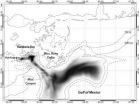(Press-News.org) West Orange, NJ. March 18, 2014. Kessler Foundation researchers have demonstrated for the first time ever that body temperature is elevated endogenously in relapsing-remitting multiple sclerosis (RRMS) and linked to worse fatigue. The article was published ahead of print on Feb. 21, 2014 in Archives of Physical Medicine & Rehabilitation. Sumowski J, Leavitt V: Body temperature is elevated and linked to fatigue in relapsing-remitting multiple sclerosis, even without heat exposure. doi:10.1016/j.apmr.2014.02.004.
Researchers measured body temperature in 50 patients with RRMS, 40 matched healthy controls, and 22 patients with secondary progressive MS (SPMS). They looked at whether resting body temperature was elevated in patients with RRMS and whether elevation was linked to fatigue, a prevalent, disabling, and recalcitrant symptom in this population.
"We found that body temperature was elevated among patients with RRMS and linked to worse fatigue," reported Dr. Sumowski, research scientist in Neuropsychology & Neuroscience Research. "Our findings support those of randomized controlled trials of cooling garments and antipyretics, which have been shown to effectively reduce fatigue in MS. More studies are needed to investigate the complex relationships among fatigue, body temperature and inflammatory processes in RRMS."
INFORMATION:
Funding for this project was provided in part by the National Institutes of Health (R00HD060765 to JFS) and Kessler Foundation.
Recent publications:
Sumowski J, Chiaravalloti N, Krch D, et al. Education attenuates the negative impact of traumatic brain injury on cognitive status. Arch Phys Med Rehabil 2013;94(12):2562-4.
Retrieval practice is a robust memory aid in memory-impaired patients with multiple sclerosis. Mult Scler 2014;95(2):397-400.
About MS Research at Kessler Foundation
Kessler Foundation's cognitive rehabilitation research in MS is funded by grants from the National Institutes of Health, National MS Society, NJ Commission of Brain Injury Research, Consortium of MS Centers, and Kessler Foundation. Under the leadership of John DeLuca, PhD, senior VP for Research & Training, and Nancy Chiaravalloti, PhD, director of Neuropsychology & Neuroscience Research, scientists have made important contributions to the knowledge of cognitive decline in MS. Clinical studies span new learning, memory, executive function, attention and processing speed, emotional processing, employment and cognitive fatigue. Research tools include innovative applications of neuroimaging, iPADs, and virtual reality. Among recent findings are the benefits of cognitive reserve and aerobic exercise; correlation between cognitive performance and outdoor temperatures; efficacy of short-term cognitive rehabilitation using modified story technique; factors related to risk for unemployment, and the correlation between memory improvement and cerebral activation on fMRI. Foundation research scientists have faculty appointments at Rutgers New Jersey Medical School. The opening of the Neuroimaging Center at Kessler Foundation in 2013 has greatly expanded the Foundation's capability for neuroscience research in MS and other neurological conditions.
About Kessler Foundation
Kessler Foundation, a major nonprofit organization in the field of disability, is a global leader in rehabilitation research that seeks to improve cognition, mobility and long-term outcomes, including employment, for people with neurological disabilities caused by diseases and injuries of the brain and spinal cord. Kessler Foundation leads the nation in funding innovative programs that expand opportunities for employment for people with disabilities. For more information, visit KesslerFoundation.org.
facebook.com/KesslerFoundation
http://twitter.com/KesslerFdn
Carolann Murphy, PA; 973.324.8382; CMurphy@KesslerFoundation.org
Lauren Scrivo, 973.324.8384/973.768.6583 (cell); LScrivo@KesslerFoundation.org
Kessler Foundation researchers link body temperature to relapsing-remitting MS and fatigue
Findings support those of randomized controlled trials of cooling garments and antipyretics, which have been shown to effectively reduce fatigue in MS
2014-03-18
ELSE PRESS RELEASES FROM THIS DATE:
NIST chips help BICEP2 telescope find direct evidence of origin of the universe
2014-03-18
The view back in time—way back to the origins of the universe—just got clearer. Much clearer.
A team of U.S. cosmologists using the BICEP2 telescope at the South Pole announced this week that they have discovered the first direct evidence of the rapid inflation of the universe at the dawn of time, thanks in part to technology developed and built by the National Institute of Standards and Technology (NIST).
The BICEP2 camera relies, in part, on the extraordinary signal amplification made possible by NIST's superconducting quantum interference devices (SQUIDs).
The ...
NRL models Deepwater Horizon oil spill
2014-03-18
Dr. Jason Jolliff is an oceanographer with the U.S. Naval Research Laboratory (NRL). "The emphasis here," he says, "is on developing models of the ocean environment to help the naval warfighter." His most recent paper, published in Ocean Modeling (March 2014), shows NRL can also forecast where oil will go following a major spill.
"If you're going to do forecasting," he says, "you have to get the ocean circulation correct. It's fundamental to all else." Jolliff plugged the distribution of surface oil following the 2010 Deepwater Horizon oil spill—when it was still well ...
Canadian drinking-age laws have significant effect on deaths among young males
2014-03-18
A recent study by a University of Northern British Columbia-based scientist associated with the UBC Faculty of Medicine and UNBC's Northern Medical Program demonstrates that Canada's drinking-age laws have a significant effect on youth mortality.
The study was published yesterday in the international journal Drug and Alcohol Dependence. In it, Dr. Russell Callaghan writes that when compared to Canadian males slightly younger than the minimum legal drinking age, young men who are just older than the drinking age have significant and abrupt increases in mortality, especially ...
Global food trade can alleviate water scarcity
2014-03-18
Trading food involves the trade of virtually embedded water used for production, and the amount of that water depends heavily on the climatic conditions in the production region: It takes, for instance, 2.700 liters of water to produce 1 kilo of cereals in Morocco, while the same kilo produced in Germany uses up only 520 liters. Analyzing the impact of trade on local water scarcity, our scientists found that it is not the amount of water used that counts most, but the origin of the water. While parts of India or the Middle East alleviate their water scarcity through importing ...
Using big data to identify triple-negative breast, oropharyngeal, and lung cancers
2014-03-18
Researchers at Case Western Reserve University and colleagues used "big data" analytics to predict if a patient is suffering from aggressive triple-negative breast cancer, slower-moving cancers or non-cancerous lesions with 95 percent accuracy.
If the tiny patterns they found in magnetic resonance images prove consistent in further studies, the technique may enable doctors to use an MRI scan to diagnose more aggressive cancers earlier and fast track these patients for therapy. Their work is published online in the journal Radiology at http://pubs.rsna.org/doi/full/10.1148/radiol.14131384. ...
Strongest evidence yet of 2 distinct human cognitive systems
2014-03-18
BUFFALO. N.Y. — Cognitive scientists may have produced the strongest evidence yet that humans have separate and distinct cognitive systems with which they can categorize, classify, and conceptualize their worlds.
"Our finding that there are distinct, discrete systems has implications for the fields of child development and cognitive aging," says lead researcher, cognitive psychologist J. David Smith, PhD, of the University at Buffalo.
"These distinct systems may have different developmental courses as the cortex matures," he says, "meaning that children may categorize ...
Ipilimumab in advanced melanoma: Added benefit for non-pretreated patients not proven
2014-03-18
The German Institute for Quality and Efficiency in Health Care (IQWiG) already assessed the added benefit of ipilimumab in advanced melanoma in 2012. A considerable added benefit was found for patients who had already received previous treatment. In the new dossier compiled by the drug manufacturer, the drug was now compared with the appropriate comparator therapy dacarbazine specified by the Federal Joint Committee (G-BA) also for non-pretreated patients.
Again, the manufacturer claimed a noticeable gain in survival time and thus an added benefit. This time, IQWiG did ...
Scientists using UNH detector illuminate cause of sun's 'perfect storm'
2014-03-18
DURHAM, NH –– In a paper published today in Nature Communications, an international team of scientists, including three from the University of New Hampshire's Space Science Center, uncovers the origin and cause of an extreme space weather event that occurred on July 22, 2012 at the sun and generated the fastest solar wind speed ever recorded directly by a solar wind instrument.
The formation of the rare, powerful storm showed striking, novel features that were detected by a UNH-built instrument on board NASA's twin-satellite Solar TErrestrial RElations Observatory (STEREO) ...
New airborne GPS technology for weather conditions takes flight
2014-03-18
GPS technology has broadly advanced science and society's ability to pinpoint precise information, from driving directions to tracking ground motions during earthquakes. A new technique led by a researcher at Scripps Institution of Oceanography at UC San Diego stands to improve weather models and hurricane forecasting by detecting precise conditions in the atmosphere through a new GPS system aboard airplanes.
The first demonstration of the technique, detailed in the journal Geophysical Research Letters (GRL), is pushing the project's leaders toward a goal of broadly implementing ...
Pitt study challenges accepted sepsis treatment
2014-03-18
PITTSBURGH, Mar.14, 2014 – A structured, standardized approach to diagnose and treat sepsis in its early stages did not change survival chances for people who develop this deadly condition, according to a national, randomized clinical trial led by experts at the University of Pittsburgh School of Medicine.
Their findings, available online and published in the May 1 edition of the New England Journal of Medicine, could change the way sepsis is diagnosed and treated. Each year, sepsis, the body's response to severe infections, kills more people than breast cancer, prostate ...
LAST 30 PRESS RELEASES:
Blood test predicts which bladder cancer patients may safely skip surgery
Kennesaw State's Vijay Anand honored as National Academy of Inventors Senior Member
Recovery from whaling reveals the role of age in Humpback reproduction
Can the canny tick help prevent disease like MS and cancer?
Newcomer children show lower rates of emergency department use for non‑urgent conditions, study finds
Cognitive and neuropsychiatric function in former American football players
From trash to climate tech: rubber gloves find new life as carbon capturers materials
A step towards needed treatments for hantaviruses in new molecular map
Boys are more motivated, while girls are more compassionate?
Study identifies opposing roles for IL6 and IL6R in long-term mortality
AI accurately spots medical disorder from privacy-conscious hand images
Transient Pauli blocking for broadband ultrafast optical switching
Political polarization can spur CO2 emissions, stymie climate action
Researchers develop new strategy for improving inverted perovskite solar cells
Yes! The role of YAP and CTGF as potential therapeutic targets for preventing severe liver disease
Pancreatic cancer may begin hiding from the immune system earlier than we thought
Robotic wing inspired by nature delivers leap in underwater stability
A clinical reveals that aniridia causes a progressive loss of corneal sensitivity
Fossil amber reveals the secret lives of Cretaceous ants
Predicting extreme rainfall through novel spatial modeling
The Lancet: First-ever in-utero stem cell therapy for fetal spina bifida repair is safe, study finds
Nanoplastics can interact with Salmonella to affect food safety, study shows
Eric Moore, M.D., elected to Mayo Clinic Board of Trustees
NYU named “research powerhouse” in new analysis
New polymer materials may offer breakthrough solution for hard-to-remove PFAS in water
Biochar can either curb or boost greenhouse gas emissions depending on soil conditions, new study finds
Nanobiochar emerges as a next generation solution for cleaner water, healthier soils, and resilient ecosystems
Study finds more parents saying ‘No’ to vitamin K, putting babies’ brains at risk
Scientists develop new gut health measure that tracks disease
Rice gene discovery could cut fertiliser use while protecting yields
[Press-News.org] Kessler Foundation researchers link body temperature to relapsing-remitting MS and fatigueFindings support those of randomized controlled trials of cooling garments and antipyretics, which have been shown to effectively reduce fatigue in MS




